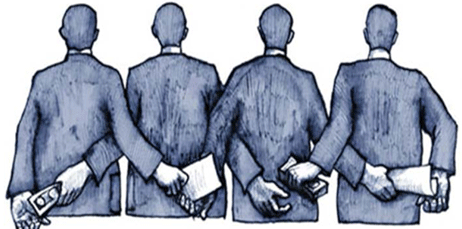
Zbigniew Brzezinski, co-founder of the Trilateral Commission, died Friday.
He was responsible for most of America’s economic woes today caused by our monstrous foreign trade deficit, fortunes and lives lost in Afghanistan, trillions wasted in the Cold War.

Leading the Trilateral effort, Brzezinski became National Security Advisor for President James Carter, and in May 1978, against State Department wishes, began talks that led to full diplomatic relations in December that year.
Brzezinski’s “normalization” of relations with Communist China was designed to change it technologically into a super power.
The following year the Washington Post reports in a February article – China Policy: A Born-Again Brzezinski – how Zbigniew describes his meeting with Cyrus Vance and China’s leader, Deng Xiaoping (Teng):
FEBRUARY 1979 — The eyes sparkle with excitement even days later. The arms erupt in sudden sweeping gestures when he talks about it. And that causes the photos — about a dozen of them — to fly out of Zbigniew Brzezinski’s hands and scatter over the floor of his office as he is speaking.
“Here’s Cy… and here I am… and there is Teng right between us.… ”
Brzezinski is talking in that quick. clipped, excited style that is his way, and he is pointing at one photo that remains in his hand while he bends to scoop up the rest, talking all the while.
“It’s amazing, when you think of it. The leader of a billion people — having dinner in my house just two hours after he arrived in this country!
“I mean, it really is rather amazing!”
Trilateralist Kiichiro Kitaura, Chairman of Numuru Securities Company, Ltd., was the main speaker at that February confab. He proposed the group attempt to internationalize the yen, push cooperation between Japanese and American businessmen on ways to penetrate the Chinese market, and “blend” Japanese and American technology.
Kitaura also agreed with fellow Trilateralist Philip Trezise (from Brookings Institution) that Japan’s large current account surplus should be invested abroad and not in Japan. Trezise was backed by another American Trilateralist, Peter G. Peterson, Chairman of Lehman Brothers, Kuhn Loeb, Inc., who, like Kitaura, urged more Japanese trade.
Peterson later retired from Wall Street to lead the effort to ultimately eliminate Medicare and Social Security by first privatizing them. He has spent about a billion dollars on propaganda, including efforts such as Fix the Debt and the Fiscal Times.
Some may suggest that the path to this open door China policy was first initiated by President Richard Nixon. However, most of the credit for that policy belonged to Henry Kissinger, a major player in the Trilateral Commission.
In June 2001, a revealing Time Magazine article Made in China: The Revenge of the Nerds said that nation had been converted into a Technocracy! Author Kaiser Kuo explained:
The nerds are running the show in today’s China. In the twenty years since Deng Xiaoping’s reforms kicked in, the composition of the Chinese leadership has shifted markedly in favor of technocrats. …It’s no exaggeration to describe the current regime as a technocracy.
After the Maoist madness abated and Deng Xiaoping inaugurated the opening and reforms that began in late 1978, scientific and technical intellectuals were among the first to be rehabilitated. Realizing that they were the key to the Four Modernizations embraced by the reformers, concerted efforts were made to bring the “experts” back into the fold.
During the 1980s, technocracy as a concept was much talked about, especially in the context of so-called “Neo-Authoritarianism” — the principle at the heart of the “Asian Developmental Model” that South Korea, Singapore, and Taiwan had pursued with apparent success. The basic beliefs and assumptions of the technocrats were laid out quite plainly: Social and economic problems were akin to engineering problems and could be understood, addressed, and eventually solved as such.
Other influential Commission members have included familiar names: George H. W. Bush, Dick and Lynne Cheney, Bill Clinton, Al Gore, Jimmy Carter, Walter Mondale, David Rockefeller, David Gergen, Richard Holbrooke, Madeleine Albright, Robert McNamara, Paul Volcker, Alan Greenspan and Paul Wolfowitz, plus US Senators Diane Feinstein, Robert Taft Jr., Charles Robb, William Cohen and John Glenn.


Reblogged this on Brittius.
LikeLike